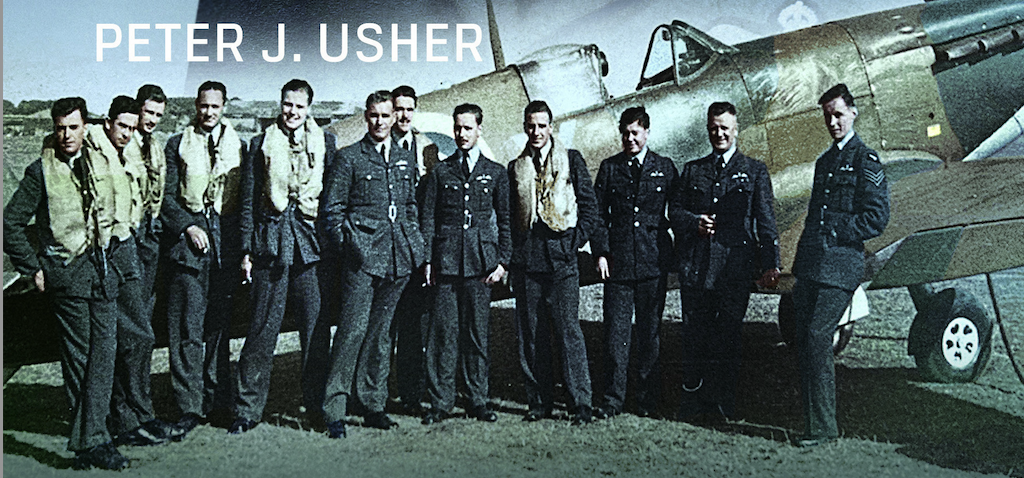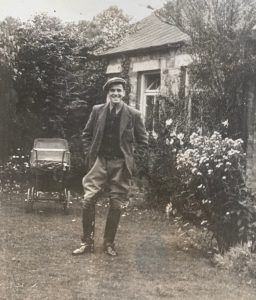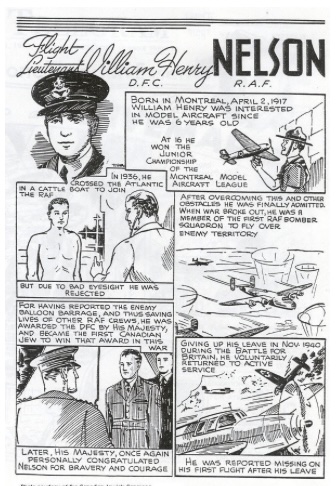The Battle of Britain began 85 years ago today. Over 100 Canadians took part, flying in Royal Air Force uniform. One of them was William Henry Nelson of Montreal.

Willie Nelson had a passion to fly. Unable to afford flying lessons, he decided in 1936, at the age of nineteen, to go to England to join the RAF. There he would undergo the most demanding flying training for free. He enjoyed a charmed life in those pre-war years as a pilot and athlete. He began the war as a bomber captain and a married man.

(Bill McAlister)
Nelson was awarded a Distinguished Flying Cross in June 1940, at the end of his first tour of operations. That month, as Nazi Germany defeated France and threatened to invade Britain, Nelson made a bold decision. He volunteered to become a fighter pilot. He hadn’t come to England to be a warrior, but now he felt compelled to fight to the end against everything that Nazi Germany stood for.
85 years ago this week Nelson was in training to fly Hurricanes. Two weeks later he would join #74 Spitfire Squadron on the front line of the Battle of Britain. The next week Nelson shot down his first enemy aircraft. By the end of October he had downed five Luftwaffe planes and damaged two more. He thus became the only Canadian Spitfire Ace (five kills) in the Battle of Britain. There were other Canadian aces in the Battle, most notably Calgary’s Willie McKnight, but all had been Hurricane pilots.
Few RAF pilots flew both bomber and fighter aircraft in combat during the war. Fewer still excelled at both, but Willie Nelson was among them. Yet his success was short-lived. He was shot down while on patrol over the English Channel on 1 November, the day after the Battle of Britain was later deemed to have ended. He has no known grave. Nelson left a wife and a two-month old son.

Nelson was briefly celebrated in Canada. Yet he soon faded from memory. The war still seemed far away for Canadians in the summer of 1940. Our battles would come later, in Bomber Command over the next five years, and in Italy and France in the last two years of the war. The casualties in 1940 were few, in later years they came as a flood.
The Battle of Britain is iconic in that country’s public memory as an example of steadfast defiance in the face of hostile assault by a larger force. It was won at great odds, and with much sacrifice. Had it not been won, the war might have turned out rather worse for Britain, and for Canada. It’s worth reflecting on the Battle of Britain this week, as we face a different but difficult struggle, in very different circumstances.
Willie Nelson stepped forward at a crucial moment, prepared to put his values and skills to the test without reservation. His example should resonate with us today.